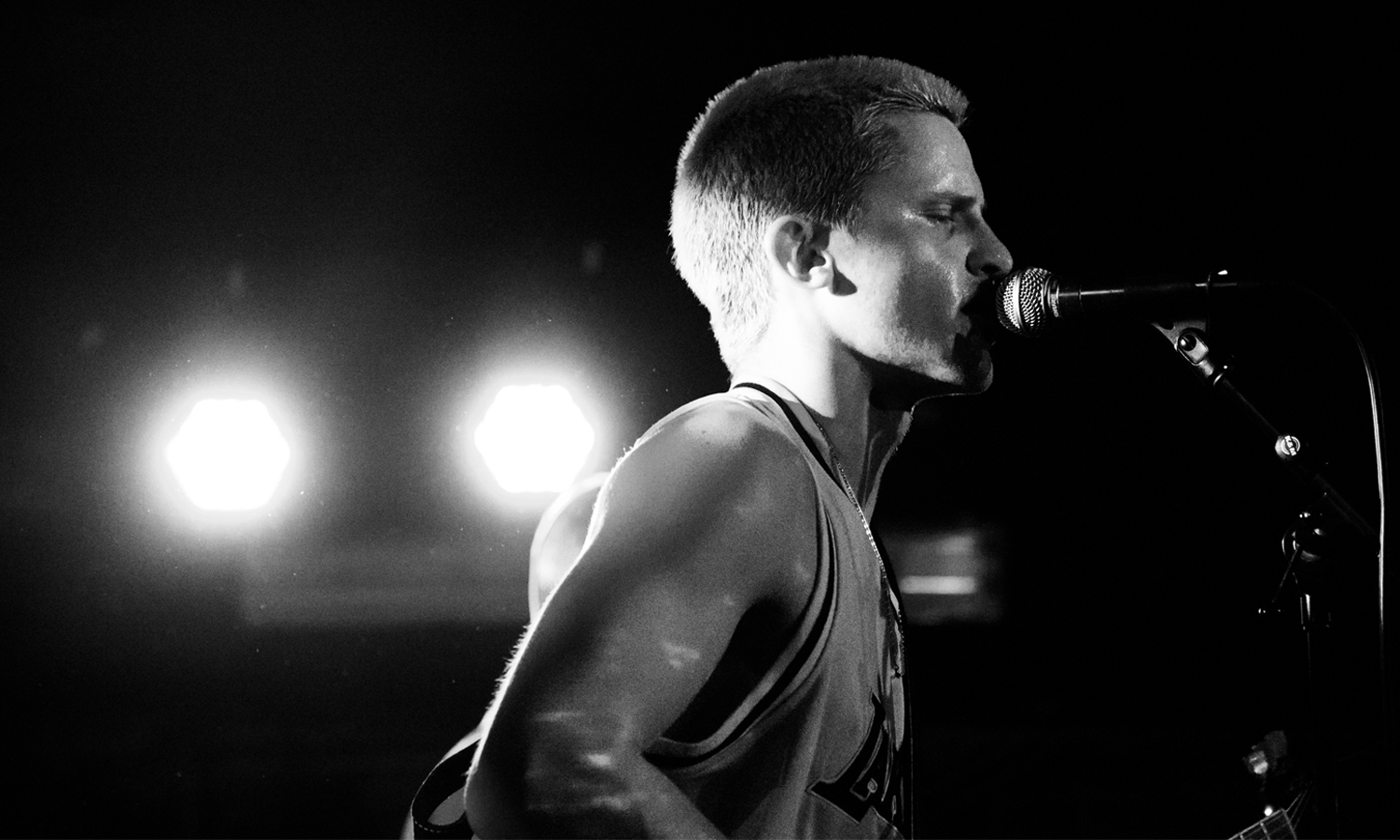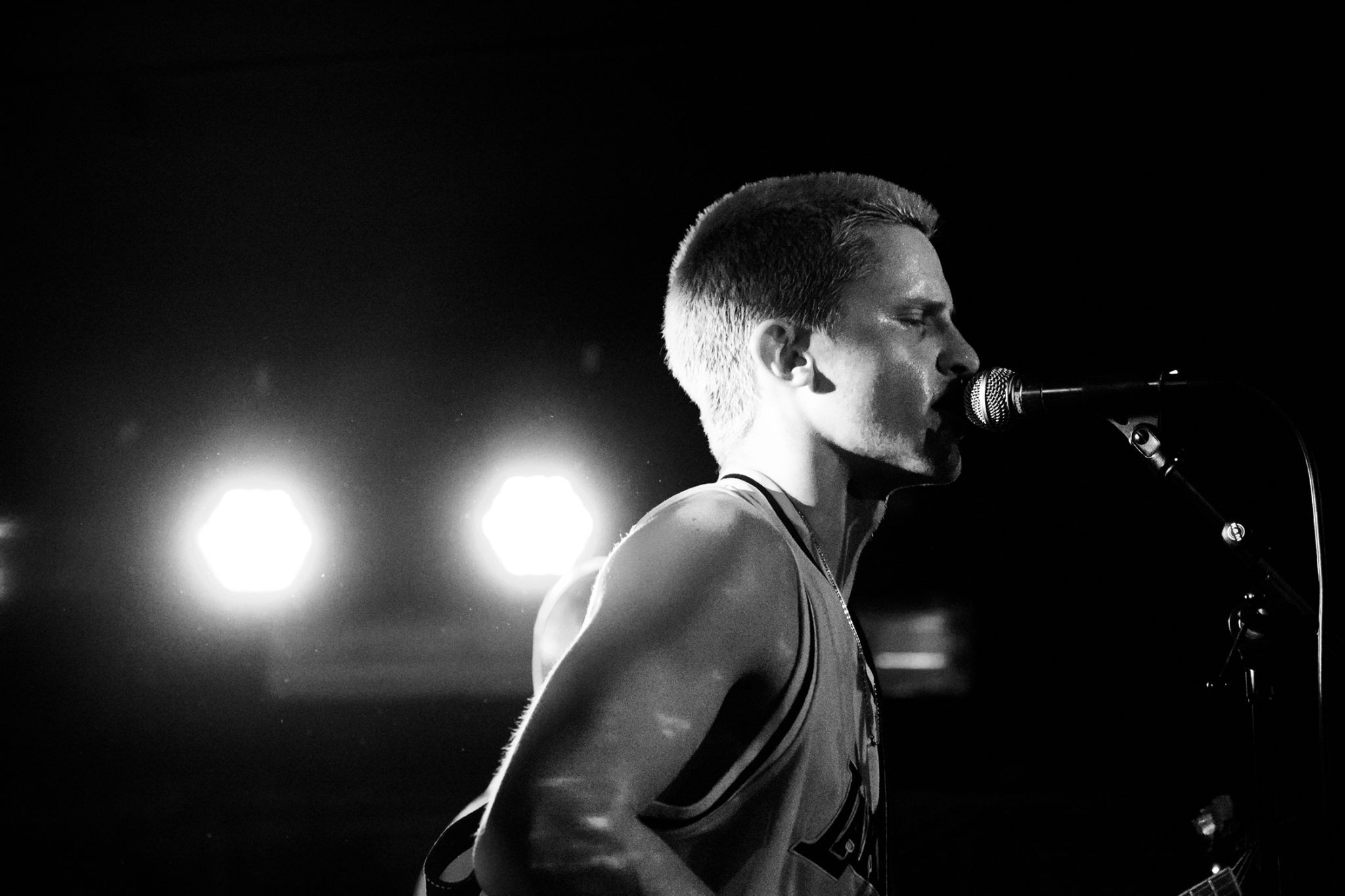CreatiVity 01: Hedi Slimane’s College Music Diaries featuring Telescreen
Creative Director of Celine kicks off the first week of college music discovery program with New York University band.

Hello, world! As we kick off the first installment of our CreatiVity program, we’re excited to welcome Hedi Slimane, Creative Director of Celine and longtime V collaborator, to the initiative. As a proponent of youth culture who knows the powerful connection between fashion and music, Slimane browsed Quadio—a new social streaming platform dedicated to serving up the best new college music—to find diamonds in the rough, honing in on raw musical talents with promising futures.
During the current cultural reset, these young artists are giving us a future to look forward to. For his pick of the week, Hedi chose “Melancholy Dreams” by college band Telescreens from New York University. All in their 20s and originally from different parts of the world, the band’s chemistry set forth to unearth an eclectic sound of alternative rock roots in symbiotic alignment with electronic synths.
See below for a special Q & A with the band and listen to Hedi’s pick “Melancholy Dreaming”.

V MAGAZINE What are your names, ages and where do you all go to school?
TELESCREENS Our names are Jackson Hamm, Austin Brenner, Josiah Valerius ages 22, and Oliver Graf age 20 and we attend NYU.
V What roles or instruments do each of you play?
T Jackson Hamm: Vocals and Guitar, Production, Songwriting; Austin Brenner: Bass and Motherboard, Production, Mix and Mastering; Josiah Valerius: Keys and Motherboard, Production, Mix and Mastering; Oliver Graf: Drums.
V Where are you all from originally?
T Jackson Hamm: London, UK; Austin Brenner: San Francisco, California; Josiah Valerius: Newark, New Jersey; Oliver Graf: Los Angeles, California.
V Can you tell us a little bit about your background in music and the band? Could you tell us about the name?
T The Telescreens all met in New York in the first year of college. Jackson grew up playing guitar and singing hooked constantly on The Beatles, Nirvana, and Bob Dylan. Josiah is from Newark and grew up playing drums and piano in a gospel church. When he was in high school Josiah quickly found his passion in producing hip hop music. Austin grew up a young guitar prodigy. When Austin was in late middle school he switched his focus completely and fell in love with chopping vinyl records and making soul beats (originally on the DAW Reason). We all have very different musical backgrounds but bonded over an incredibly strong love of Kanye West. Later that year Blonde by Frank Ocean came out. Blonde gave us such an education in modern production and songwriting that we felt we could predict and execute where music was heading at the turn of a new decade. We owe a lot to the lessons we learned from Frank Ocean’s entire catalogue. When we finally finished the album and wanted to start playing live, Jackson ran into his childhood friend, Oliver Graf, who had a long history playing drums live with him. It was fate for Oliver to join Telescreens at the end of 2019.
V If you could work with anyone musically, who would that be?
T Rick Rubin
V How do you want listeners to feel (or what do you want them to do) when they listen to your music?
T We want them to feel the spiritual energy that exists constantly around all humans. It’s a beacon for the people to access themselves and the infinite.
V Can you tell us about your process when it comes to producing new music?
T A song can start from anywhere. All of us produce, we all make beats and we all play instruments. It can come from a series of chords, a drum beat, a melody or lyrics. At some point in the early stages of making a song there is a burst of inspiration and one of us comes up with the full vision for a song. We try to internalize this moment the best we can, take notes, voice memos, any tools we can use to remember the vision in as much detail as possible. It is important to document this in detail as we will be spending the next 2 to 3 years executing this vision and there are many things in life that can pull you out of your previous thought processes. All we know for certain during these years is that the moment in which we originally felt the energy is the moment we are chasing.
V How did you hear about Quadio?
We first heard about Quadio from several of our friends who had begun working for Quadio. We then heard about Quadio from an EDM artist in Boulder University, then a rapper from Fordham University and a pop artist at Tufts University. By the time Quadio launched it’s beta, we knew we had to distribute our music through their platform. We wholeheartedly stand by the mission statement of the company and have been very excited about the potential of Quadio and what their platform could mean for collegiate musicians around the world.
Quadio’s platform allows us to connect with similarly minded artists and fans. Their user base has a deep foundation of creatives from all over the country allowing them to facilitate a scene of artistic creation by promoting collaboration and emphasizing innovation beyond just music. We are always looking for other like-minded people, so we knew it would be a good fit.
V Do you believe music is important especially during a time where the world is in crisis?
T In a strange irony, this period of time largely reflects the context of our album. The journey of “The Return” is one of isolation and solitude; the songs on the record are largely an existential exploration during the most intense isolation. Music allows you to escape your reality and step into a world created by an artist. In these times of isolation, music is the thing that can keep your mind occupied and trigger your imagination into overdrive.
V How has the adjustment to the current climate of COVID-19 impacted your lives?
T We have been focusing on the beginning and end of the record process. Mixing our album takes up most of our time and is a solitary act, so it’s a good thing to do these days. We get together on Facetime to discuss the mixes at the end of the day, usually frustrated, but sometimes elated. We have also been starting songs from scratch—that is a beneficial thing to do alone (beat making, chord writing, lyrics, anything can start a song). We start making an album when we have enough ideas like these to create a full experience.
V How have you been coping during this time? Is there anything that’s keeping you grounded?
T We have all been writing a lot of new music. There was a burst of songs sent to the group chat in the first week of quarantine. Everyone is home and is making music very close to their heart. The comfort in vulnerability has led to some very powerful songs. In the beginning, we vowed to make a song a day, this held up for a few weeks but is slowing down now. It seems there will be multiple phases of intense creation followed by periods of absorbing and processing reality during this quarantine. The constant cycle.
V Where do you see yourselves and your music career 5 years from now?
T The Pyramid stage at Glastonbury.
V What’s one goal for the Telescreens to hit this year?
We will release our debut album The Return.
This could be you next! Head to our musician hub to find out how to enter for a chance to debut your music on VMagazine.com! Don’t forget to follow Quadio and VMagazine on Instagram to stay tuned for more new music updates.
Discover More
